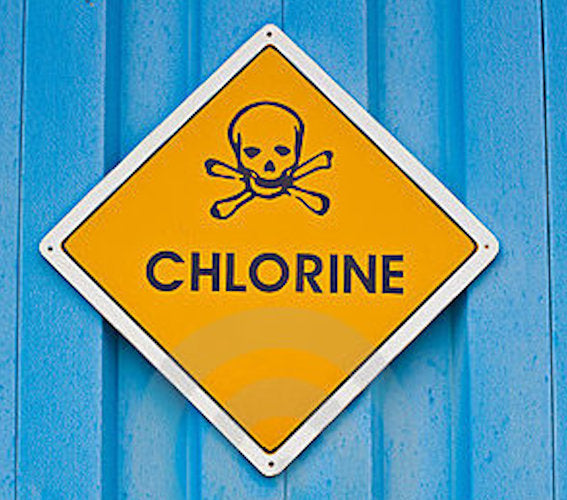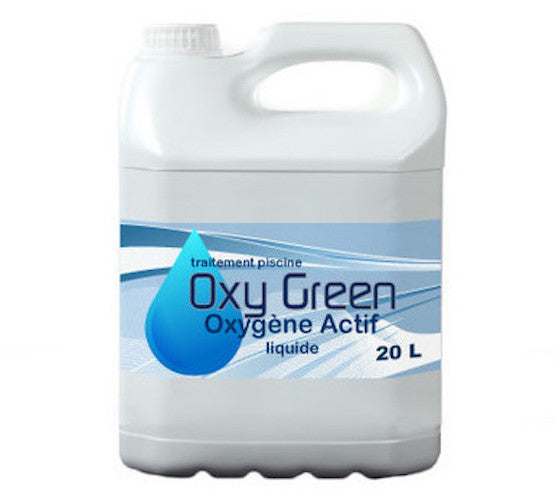What is chlorine?
Chlorine is a highly effective disinfectant used to kill bacteria in water. Like bromine or ozone, it recombines with bodily organic matter brought in by swimmers (urine, saliva, feces, sweat, etc.) and forms harmful chemical contaminants (trihalomethanes, organochlorides, trichloramines, chloroform). Chloramides, among others, are particularly concentrated in the area ten centimeters above the water, right at the level of swimmers' nostrils and mouths.
In other words, organic matter such as sweat or urine combines with chlorine and produces gases that are dangerous to health.

What are the risks?
There are many symptoms that can be noticed after swimming in chlorinated water such as runny nose, red eyes, cough, asthma, joint pain, swelling, nausea, urinary problems, skin irritation (eczema), discomfort, etc.
Chlorine, when combined with bodily organic matter, produces by-products that are harmful to the respiratory system. Chlorine gas is toxic and was first used by the Germans in World War I to incapacitate enemy soldiers during attacks.
In high concentrations, it can cause lifelong breathing difficulties such as asthma or bronchitis. These problems occur in those who regularly use the pool, such as lifeguards and pool staff, and regular swimmers. Since young children are more sensitive to fumes, those who have used a chlorinated pool are four times more likely to develop respiratory allergy problems. The frequency of asthma cases increases with time spent in the pool, by around 1 to 2% per hour in the water. Some European government agencies also recommend caution and prevention for children under 2 years old. Caution is therefore advised if you suffer from or are predisposed to respiratory problems.
See the following article for more information: http://maisonsaine.ca/le-chlore-de-piscine-un-desinfectant-explosif/
The solutions
Concretely, you must limit the time spent in the chlorine-disinfected pool and soap yourself in the shower, wear a swimming cap and rinse well after swimming.
However, the ideal is to opt for an alternative water treatment system, i.e. without chlorine, such as copper-silver ionization.








1 comment
Victor Theriault
Très Utile, merci beaucoup !
Leave a comment
This site is protected by hCaptcha and the hCaptcha Privacy Policy and Terms of Service apply.